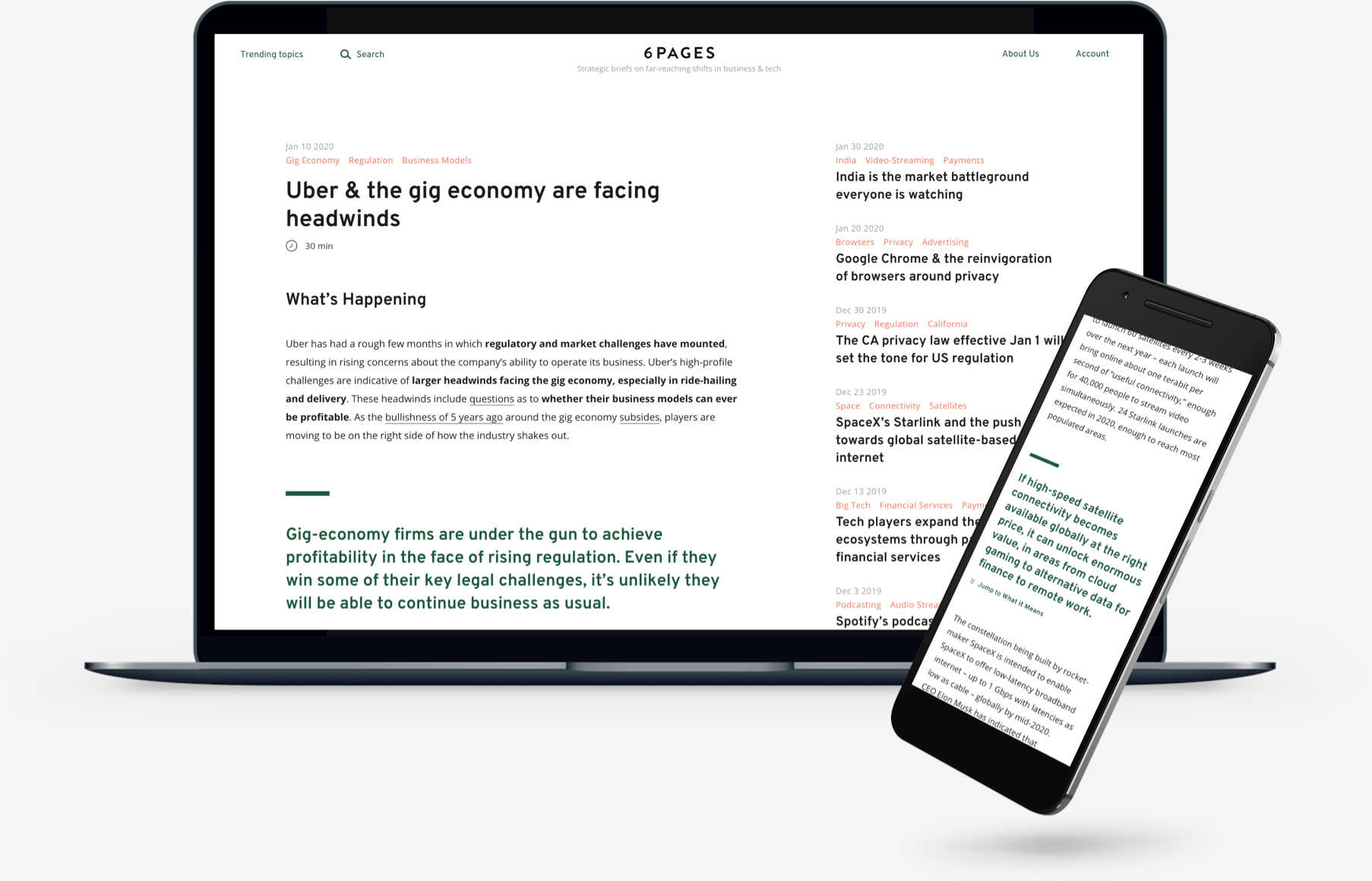“
6Pages write-ups are some of the most comprehensive and insightful I’ve come across – they lay out a path to the future that businesses need to pay attention to.
— Head of Deloitte Pixel
“
At 500 Startups, we’ve found 6Pages briefs to be super helpful in staying smart on a wide range of key issues and shaping discussions with founders and partners.
— Thomas Jeng, Director of Innovation & Partnerships, 500 Startups
“
6Pages is a fantastic source for quickly gaining a deep understanding of a topic. I use their briefs for driving conversations with industry players.
— Associate Investment Director, Cambridge Associates
Read by

Used at top MBA programs including
Nov 14 2025
Summary
- Are rewards cards going away?
- OpenAI's faster GPT-5.1
- Teradar's cheaper lidar
Become an All-Access Member to read the full brief here
All-Access Members get unlimited access to the full 6Pages Repository of868 market shifts.
Become a Member
Already a Member?Log In
All Briefs
Get unlimited access to all our briefs.
Make better and faster decisions with context on far-reaching shifts.
Become a Member
Already a Member?Log In
Get unlimited access to all our briefs.
Make better and faster decisions with context on what’s changing now.
Become a Member
Already a Member?Log In